Creation Care


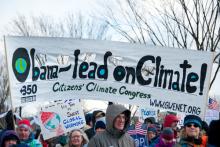
Like Jim Wallis, I believe that budgets are moral documents. They reflect our deepest values. Like budget decisions, climate decisions are moral decisions — decisions that affect the environment reveal our moral commitments.
How does Barack Obama measure up on the ‘moral leadership for the environment’ scorecard?
President Obama vetoed the Keystone XL pipeline on Tuesday. He also forged a historic agreement with Chinese Presidenta Xi Jinping in November to reduce carbon emissions in the U. S. by 26-28 percent from 2005 levels by 2025. He has worked with the auto industry to put historic fuel economy standards into place. When he wasn’t able to convince Congress to pass environmental legislation, he worked behind the scenes — using the Clean Air Act of 1970 to set tougher environmental standards. All of these actions give him points for moral leadership.
At the same time, some criticized Obama earlier in his presidency for not doing enough. In 2011, Al Gore published an article in Rolling Stone magazine saying Obama had “thus far failed to use the bully pulpit to make the case for bold action on climate change.” During the first two years of his administration, many environmental activists expected more legislation to slow climate change. Cole Stangler argues that, even given legislative obstacles, Obama could have done more through federal agencies.



We are only two months into 2015 and it has already proven to be a busy year. There is much to be hopeful for in this coming year and much work still to be done on changing the hearts and minds of those in positions of leadership. We are so thankful for our community of supporters who invest and encourage our mission and ministry!
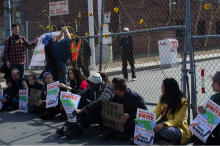
“An individual who breaks a law that conscience tells him is unjust, and who willingly accepts the penalty of imprisonment in order to arouse the conscience of the community over its injustice, is in reality expressing the highest respect for the law” —Martin Luther King, Jr.
Last year on a crisp afternoon in March, I was one of nine people arrested by the NYPD and taken away to the local precinct for processing. My crime? Attempting to plant detoxifying sunflowers on public brownfield land on the South Bronx waterfront in New York City.
Earlier in the day, more than 100 residents, faith leaders, organizations, friends, and allies came together to protest the proposed relocation of the online grocer FreshDirect to a residential neighborhood in the South Bronx. After a jubilant and joyous interfaith reflection and prayer vigil outside the entrance to the waterfront location, security guards refused to let us cross the gate, so we sat in front of it in protest — a peaceful and non violent act of civil disobedience.
Our coalition, South Bronx Unite, works to improve and protect the social, environmental, and economic future of the South Bronx in New York City, located in the poorest congressional district in the country. For three years we have been fighting to stop FreshDirect from receiving more than $100 million in subsidies and incentives to build a diesel trucking distribution center on public land along the Bronx Kill Waterfront.

Editor's Note: In this latest edition of our “Disinvest/Reinvest” series, John Elwood reflects on how – and why – he divested from fossil fuels. You can sign up for the final week of our Christian Divestment e-course here.
Investments shape souls. Jesus tells us so.
“For where your treasure is, there your heart will be also.” Matthew 6:21
Over the years, these words of Jesus have kept me away from the “merchants of death” and conflict minerals and steered me toward ethical products of many sorts. In recent years, however, a more sinister and pervasive threat has come into focus. Climate scientists in 2014 warned that energy companies like Exxon, Shell, PetroChina and Chevron – which derive their value from enormous reserves of recoverable fossil fuels – will have to leave about 80 percent of those precious reserves in the ground if the world is to have a chance of avoiding global climate mayhem.
That means that four out of every five barrels of oil, or tons of coal, or cubic feet of natural gas that these companies have discovered and developed must eventually be written off.
The market value of fossil fuel reserves today is valued at around $27 trillion, a sum that dwarfs the famous U.S. national debt. This means that there is a very, very bad day of reckoning ahead for someone. Either all of humanity will endure unspeakable suffering, or those who invest in the fossil-fuel companies will suffer huge losses.
It became clear to me that investing in fossil fuels is no longer a retirement strategy or a way of mitigating market risks. It is a decision whether to align my soul with unfathomable harm to virtually all of humanity and to all of God’s beloved creation. If I’ve got my own personal slice of those carbon reserves (whether by buying a share of ExxonMobil or by investing in a mutual fund that does), I make money, or avoid big losses, only if the entire creation groans and suffers under the weight of climate calamity.
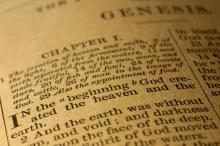
If you are a Christian, protecting the environment is part of your identity, not an ideological option, Pope Francis said Feb. 9.
“When we hear that people have meetings about how to preserve creation, we can say: ‘No, they are the greens!’” Francis said in his homily at morning Mass, using a common name for environmental activists.
“No, they are not the greens! This is the Christian!” he said.
“A Christian who does not protect creation, who does not let it grow, is a Christian who does not care about the work of God; that work that was born from the love of God for us,” Francis continued. “And this is the first response to the first creation: protect creation, make it grow.”
The pope — who took his name from St. Francis of Assisi, the patron saint of the environment — has made care for the environment a hallmark of his papacy since he was elected nearly two years ago.
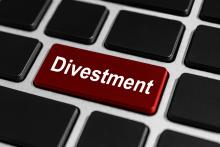
By now, you may have heard that Jim Wallis and Sojourners have stopped funding climate change by divesting from fossil fuels. Unfortunately, for millions of Christians who invest at faith-based financial institutions, fossil-free investing just isn’t an option.
We’ve done our research. Of the 13 major Christian investment companies we studied, not a single one offers a way for their members to opt out of fossil fuels. We think Christian investment companies should be the FIRST to stop funding climate change! Read our open letter and sign below.
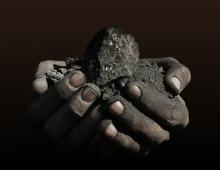
I HAVE SOMETIMES been dismayed by the lack of speed that some churches and denominations have shown when it came to tackling environmental issues. On the question of divestment from fossil fuels, for instance, the Unitarians have been forthrightly in favor, and the United Church of Christ as well (and the Rockefellers!). But the Methodists, Lutherans, Presbyterians, and Anglicans are, by and large, dragging their feet as usual.
Sometimes I confess to imagining that God herself might be getting a bit impatient, too—how else to explain the name of the site for the next great fossil-fuel battle?
It will happen in Australia’s Galilee Valley, a remote basin many hours from the continent’s cities. At the moment it’s basically untouched, but plans call for it to become The Biggest Coal Mine on Earth. There is enough coal beneath its soil to provide 6 percent of the carbon that would take us past the two-degree rise in temperature scientists have given as the ultimate red line. That is to say, one valley in one nation (a nation with one-third of 1 percent of the planet’s population) can do 6 percent of the job of wrecking the planet. One valley!
ON A TWO-ACRE parcel of land in Washington, D.C., tucked behind the provincial house of the Missionary Oblates of Mary Immaculate, Gail Taylor offers a visitor dragon’s lingerie.
“It kind of looks like fishnet stockings—that’s how it got the name,” Taylor says, holding up the heirloom snap bean, its pale yellow-green hull mottled with purple.
Across the aisle, Jack Be Little miniature pumpkins hide under leafy canopies. There are tomatoes and mustard greens, eggplant and legumes, lettuce and squash. “We’re doing a lot of intercropping and companion planting now,” Taylor says. So asparagus lies next to parsley, both behind a bed of raspberry bushes. Flowers also abound, with bursts of hot pink blossoms and purple clover that beautify the landscape while attracting pollinators.
For nearly 100 years this area, owned by the Oblates, a Catholic religious order, was only a grass field, a place where the priests would sometimes play soccer. In 2011, Taylor approached an Oblate priest and requested use of the land. “They were amenable and excited,” Taylor says. “They’re ecologically forward thinking, and they lead the Catholics in creation care.”
The space has become a location for Three Part Harmony Farm, the urban agricultural project Taylor established in D.C. She hopes it will become the first commercial farm in the District of Columbia since 1939, producing locally grown food to be sold in stores and farmers’ markets. First, there are some hurdles that the 36-year-old farmer must clear.
Photos depicting Gail Taylor's urban farming project at Three Part Harmony Farm
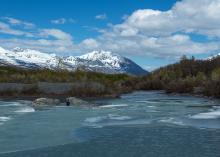
Recently President Obama proposed giving wilderness status to 12 million acres of the Artic National Wildlife Refuge.
Many Republican senators, including Alaska Sen. Lisa Murkowski, strongly oppose the president’s proposal. Much of the opposition is expressed as frustration and outrage that the president is hindering Alaskans from having control over their economic future. Sen. Murkowski asserts:
What’s coming is a stunning attack on our sovereignty and our ability to develop a strong economy that allows us, our children and our grandchildren to thrive. … It’s clear this administration does not care about us, and sees us as nothing but a territory. … I cannot understand why this administration is willing to negotiate with Iran, but not Alaska. But we will not be run over like this. We will fight back with every resource at our disposal.
The ANWR is home to significant untapped petroleum reserves that lie beneath the land the president is seeking to protect. This fight between protecting the ANWR and promoting economic growth and development through oil drilling is one that has been going on between Democrats and Republicans for years.
Alaska Gov. Bill Walker said in a statement he may be forced to accelerate oil and gas permitting on state lands to compensate for the new federal restrictions.
While I believe I understand the arguments made by advocates on both sides, it seems to me there is a fundamental ideological (and possibly theological) premise that often goes unacknowledged in these debates.

There could not be a more important year for climate action. It’s now or never. The future of our planet and the people, places, and things that we love depend on all of us working together to demand a healthy, just, and vibrant planet home. It impacts everything else – immigration and migration due to drought, flooding, sea level rise, and worsening storms; war and conflict over natural resources; access to drinkable water; food insecurity, hunger, and agriculture; disaster relief. It even impacts the sex trade — when women have to walk farther and farther to find water, they’re more vulnerable to rape and kidnapping in many regions.
So here we are, now. Governments, scientists, universities, companies, our military, and thousands of non-profit organizations are all scrambling to save the very integrity of God’s creation, the composition of the atmosphere God so magnificently created to support life on earth. And Christians are barely even at the table. We need to be at the table.

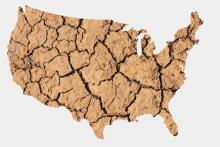
Last night I watched the State of the Union, because I live in D.C., and this is our Super Bowl. My roommate, who works on women’s rights, was listening for any mention of her "issues." And I’m no different: I tuned in to the president’s address to hear what he would have to say about climate change.
And he did have a lot to say! This is what he said:
"And no challenge — no challenge — poses a greater threat to future generations than climate change.
"2014 was the planet’s warmest year on record. Now, one year doesn’t make a trend, but this does — 14 of the 15 warmest years on record have all fallen in the first 15 years of this century.
"I’ve heard some folks try to dodge the evidence by saying they’re not scientists; that we don’t have enough information to act. Well, I’m not a scientist, either. But you know what — I know a lot of really good scientists at NASA, and NOAA, and at our major universities. The best scientists in the world are all telling us that our activities are changing the climate, and if we do not act forcefully, we’ll continue to see rising oceans, longer, hotter heat waves, dangerous droughts and floods, and massive disruptions that can trigger greater migration, conflict, and hunger around the globe. The Pentagon says that climate change poses immediate risks to our national security. We should act like it."
What struck me was that it’s now totally normal for the President of the United States to speak firmly and at length about the clear and present danger of climate change.
Look at how far we’ve come! This is real progress — this is a cultural shift. This is a victory.
But this Monday, I marked Martin Luther King Day by reading the Letter from a Birmingham Jail with members of a neighborhood church. And I heard Dr. King admonishing me for my celebration.
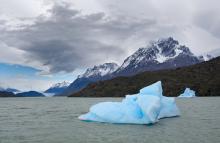
Catholic environmental groups from around the world on Jan. 14 announced a new global network to battle climate change just as many Catholic conservatives are sharply criticizing Pope Francis’ campaign to put environmental protection high on the church’s agenda.
“We are certain that anthropogenic (human-made) climate change endangers God’s creation and us all, particularly the poor, whose voices have already spoken of the impacts of an altered climate,” the new Global Catholic Climate Movement says in its mission statement.
“Climate change is about our responsibility as God’s children and people of faith to care for human life, especially future generations, by caring for all of God’s wondrous creation,” the statement continues.
The GCCM said it intends to push for international treaties to battle global warming but said it is approaching the issue from a moral and biblical perspective and hopes to “encourage the conversion of hardened hearts.”
That could be a tall order in light of current arguments over climate change in U.S. politics and in the American church.
In November, when the Senate just barely failed to pass a bill approving TransCanada’s controversial Keystone XL tar sands pipeline, Sen. Mitch McConnell (R-Ky.) interrupted the debate that followed it to tell everyone that we hadn’t seen the last of Keystone XL. He vowed that a new bill authorizing the pipeline would be the first thing on President Obama’s desk in the next session of Congress.
Sen. McConnell is making good on that promise – with another upcoming vote, he says he has the 60 votes he’ll need to pass the pipeline, which the GOP has branded as a “jobs creation” bill with dubious claims about job numbers.
But White House Press Secretary Josh Earnest announced today that “If this bill passes this Congress the president, wouldn't sign it.” This promise of a veto may have less to do with the environmental implications of the pipeline, the violation of a treaty with American Indians, or the years of steady protest from vocal opponents, and more to do with giving the State Department time to finish their review process. Regardless, it’s another stalled start for the would-be Keystone XL pipeline.
The White House needs to hear from Christians who oppose the Keystone XL pipeline. Click here to send a tweet to President Obama!

The ink is barely dry on the latest plan to deal with climate change. One can hardly claim that Lima was a resounding success, but it’s not a complete failure either. With 2014 looking to be the hottest year on record, very fast action indeed is needed to keep a global mean temperature below 2 degrees celsius over pre-industrial levels. Given that people are suffering now from less than 1 percent celsius, it is already too late to avoid some consequences of climate change. However, there is still time to avoid the worst of the scenarios, and Lima at least commits all nations to act, even if the harder decisions are to be made in Paris in 2015. Meanwhile, the clock keeps ticking.
In Australia, things have looked pretty grim for those of us concerned about the future. While I’ve been encouraged as I have gone around speaking at churches and Christian organisations, and seen the enthusiasm for something to be done, our reaction in the public sphere has often been muted. There are sections of the church who could be showing much greater moral leadership on this issue. Climate change is an issue for all Australians — indeed for all of humanity, regardless of ethnicity, religion, or politics. The reality of a drying continent, a longer and more volatile fire weather season, and deadlier heatwaves does not discriminate.
Further, with the removal of the carbon tax, an attack on the Renewable Energy Target, and the continued pushing of coal at state and federal level, we seem to be going backwards, not forwards. It is heartening to see an about-face on the Green Climate Fund, but it simply isn’t enough to play Good Samaritan when you are one of the robbers waylaying the innocent.